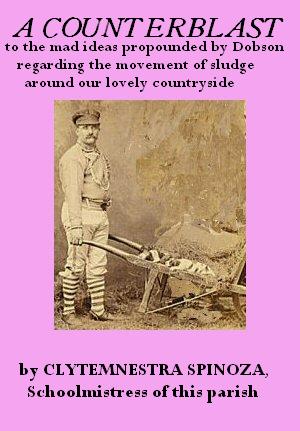Delving in the archives, for reasons related to Project Thrilling, I came upon this postage from 2008 which, my memory being the puny thing it is, I had completely forgotten. Well worth rereading.
1. A raven called Dot-son-paa created the world.
2. Startled blackbirds emit piercing cries because they think they are about to be attacked by demons.
3. Each legion of the Roman Army had a Pullarius, whose job it was to look after the cage of sacred chickens they carried with them.
4. If a dove flies over a coal mine, disaster is likely to follow.
5. The souls of unbaptised children take the form of nightjars.
6. Cuckoos in Herefordshire buy horses at a country fair, and sell them at another.
7. Beowulf was reincarnated as a woodpecker.
8. Every single corncrake in Siberia got there by riding on the back of a crane.
9. If you want to provoke someone to commit suicide, send them a picture of an owl.
10. A splinter of wood from a coffin will keep sparrows at bay.
11. If you drink boiled magpie broth you will go mad.
12. If a woman befriends a stork, it will bring her jewellery.
13. In an apotheosis, an eagle is hidden behind a blazing waxen image of a dead emperor, and released when it has melted away.
14. Epileptics can transfer their illness to a chicken by carrying it three times around a well and then spending the night with it asleep under a church altar.
15. It is a good idea to place a wooden diver atop a tall post at the corner of a grave.
16. Robins can speak Latin.
17. Jesus turned a woman into a lapwing after she baked him a cake.
18. On every beach there is a magic stone that cures blindness, but only swallows know how to find it.
19. One way to find gold is to carry with you a stone vomited up by a crane.
20. If you hear a cuckoo before eating your breakfast, ill fortune will follow, possibly to include a loss of feeling in your arms and legs.
21. Nightingales used to be one-eyed, but borrowed the eye from a blindworm and never returned it.
22. Ireland has been called “the swan abounding land”.
23. Pelicans are the most pious of birds.
24. To avoid being bitten by a rabid dog, tuck the heart and right foot of an owl under your left armpit.
25. Cranes migrate south for the sole purpose of launching savage attacks on miniature people, about seven inches high, who they gobble up.
26. You can protect your house from lightning strikes by keeping a blackbird in your living room
27. Crossbills watch over children who fall asleep in direct moonlight and may therefore otherwise come to harm.
28. If bird eggs are incubated by frogs, the birds that hatch from them, irrespective of the parent birds, will be stonechats.
29. Migrating quails are terrified of the sea, and shut their eyes when crossing it, thus often colliding with ships.
30. Nail a dead owl to your barn to protect against storms.
31. The earth was created from mud collected by white-billed divers.
32. If you eat roasted swallow, you are likely to be attacked by dragons.
33. A crossbill tried, but failed, to wrench the nails from Christ’s cross during the crucifixion.
34. You can kill gnats and flies with a handful of soil taken from where you are standing when you hear a cuckoo call.
35. If you are lucky enough to find a stone known as an alectorius in the gizzard of a chicken, you will become invisible.
36. The Virgin Mary decided to marry Joseph after she saw a dove land on his head.
37. Three Roman emperors died after owls perched on the roofs of their villas.
38. If you dissolve the eyes of a quail in water, then mix with oil and rub it onto a burning rag, you will take on the appearance of a devil on fire.
39. Eagles can look at the sun without blinking.
40. The god Asmodi appears in the form of a goose and envelops Frisian peasants in darkness while they engage in sex orgies.
41. Cuckoos turn into birds of prey around June or July.
42. Widowed doves only drink from muddy puddles after dark.
43. Barnacle geese are hatched from shells attached to waterlogged timbers tossed along the sea, and are at first like gum.
44. You will be admired by everyone you meet if you keep in your pocket the eyes of a hoopoe.
45. It is advisable to be sitting down when you see a swallow.
46. If you hear a lapwing call, you should throw a bowl of water into the air.
47. Kingfishers live on riverbanks because they are searching for Noah’s Ark.
48. Magpies have a drop of human blood on their tongues.
49. When putting on a play, avoid having any peacock feathers on stage, or disaster will strike.
50. Nightjars attack cattle with their beaks and give them a disease known as puckeridge.
51. You will not get a proper night’s sleep if you have the heart and eyes of a nightingale in your bed.
52. Pelicans are known to set fire to themselves by flapping their wings excessively near bonfires.
53. You can forecast wind direction by hanging a dead kingfisher upside down from a length of thread, and watching which way its breast faces.
54. The liver of a hoopoe, pounded to a pulp and mixed with crocus, is a surefire cure for lung disease.
55. The god Odin had two pet ravens called Hugin and Munin, who spent all day flying around the world, returning at night to perch on his shoulder and tell him what they had seen and heard.
56. If you are holding a robin when it dies, your hand will never stop shaking.
57. On Sundays, rooks sit quietly on branches and do not carry sticks in their beaks.
58. To encourage rainfall, it is a good idea to get some swallows and throw them into a pond.
59. Sometimes you should pretend that a wren is a beast of enormous size, and drag a dead one into town on a wagon drawn by four oxen.
60. There are some trees which fall into the sea and become birds.
My source for much of this information is Flights Of Fancy : Birds In Myth, Legend & Superstition by Peter Tate. Highly recommended.




